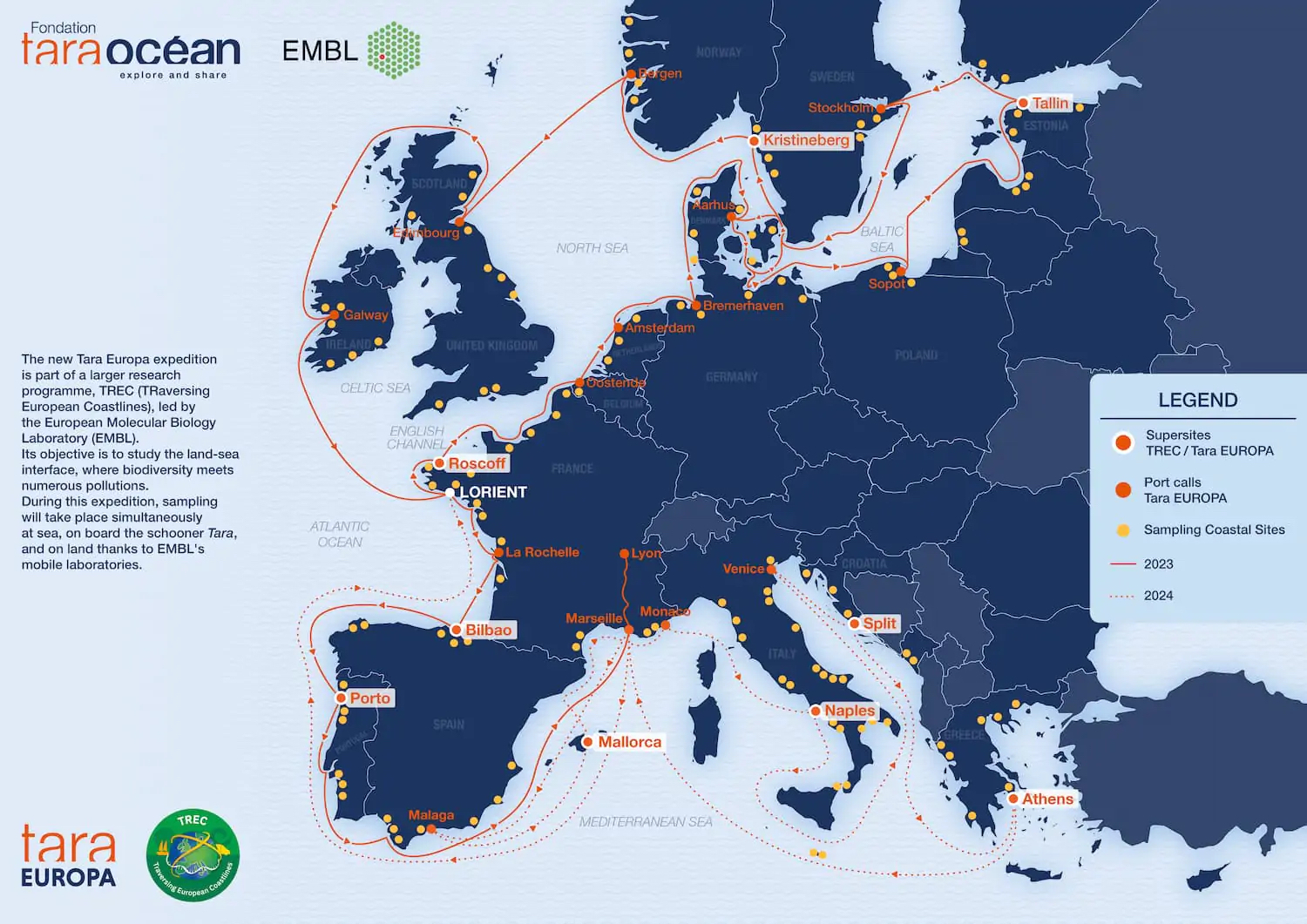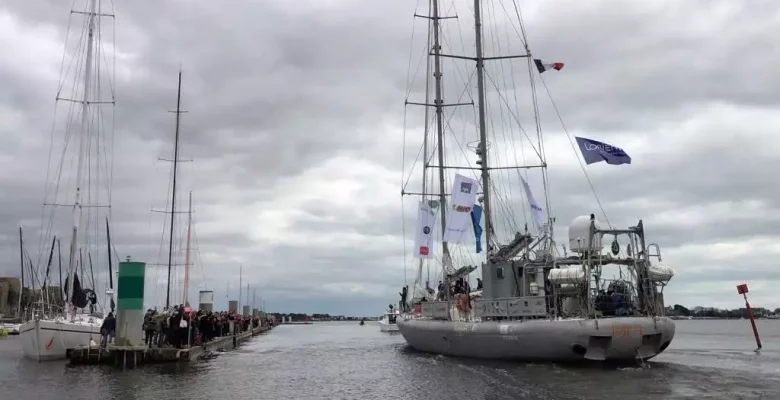By Laurie Henry
On Sunday April 2, in the port of Lorient, the scientific schooner TARA set off for a new two-year expedition. By combining terrestrial and maritime studies of ecosystems, this mission aims to analyze the impact of pollution on biodiversity all along the European coasts. The stopovers will be an opportunity to share knowledge and raise everyone’s awareness of the essential role of the oceans, while highlighting their fragility in the face of human activities.
Coastlines essential to humans
European coastlines are environments rich in biodiversity and also represent important industrial, cultural and heritage sites. Indeed, coastal regions are key functional ecosystems on which humans depend for their livelihoods and well-being.
But they also play an essential role in the stability and sustainability of larger ecosystems. Terrestrial and marine ecosystems do not exist in isolation. They and the organisms that compose them influence each other, impact the overall health of our planet, and underpin the evolution of life on Earth.
However, the impacts of activities such as pollution, agriculture and construction of buildings, as well as climate change, lead to an accelerated loss of the genetic diversity of species and the destruction of ecosystems.
To minimize the consequences of these factors on coastal biodiversity, it is imperative to understand the responses to pressures of organisms at the molecular and cellular level at the scale of the European continent, and the impact they have on the functioning of the whole ecosystem. ‘ecosystem.
Professor Peer Bork, Director of EMBL Heidelberg (European Molecular Biology Laboratory) and coordinator of the TREC (Traversing European Coastlines) project, led by this expedition, explains: “The trans-European nature of this project means that samples will be taken from standardized way. This will allow data to be compared and probed across the whole of Europe instead of a regional or national system”.
An unprecedented scientific approach and solid cooperation
The expedition will combine ocean exploration conducted by the Tara Oceans Foundation and the Tara Oceans Consortium, with parallel sampling of soils, sediments, aerosols, shallow waters and selected model organisms in various habitats. They will be supported by EMBL’s land mobile services and local marine research institutes, including more than 150 research teams from more than 70 institutions in 29 European countries.

Tara Europa expedition map. © Tara Ocean Foundation
The diversity of organisms will be studied at all scales, from viruses, bacteria and protists (unicellular organism) to multicellular groups such as algae and animals. The analysis will involve innovative microcopy techniques to observe unprecedented detail in the association of molecular and morphological data at the level of a single organism and a single cell!
This technology will be brought to the field by EMBL’s TREC, an essential contribution to the value of the data. Indeed, biological samples can be fragile: as soon as water or soil is removed from its natural environment, the organisms and ecosystems they contain begin to change. By bringing advanced laboratory tools to the field, scientists can tackle entirely new questions.
In addition to standard oceanographic data (pH, salinity, temperature, etc.), particular emphasis will be placed on the detection of metabolites (intermediate organic compound or compound resulting from the metabolism of an organism) as well as on the physical and chemical characterization (this i.e. pollutants such as metals, pesticides, hormones and antibiotics) of the sampled habitats.
The result will be the integration of large datasets into a comprehensive picture of the connections within and between different terrestrial and aquatic ecosystems, from the smallest microbes to animals and plants. This feat will allow scientists to understand the effects of environmental changes in this network of ecosystems.
Engage and educate the general public
Marine biodiversity and ecosystems are changing at a faster rate than terrestrial ecosystems, resulting from the cumulative impacts of human actions, including global ocean warming, deoxygenation, acidification, as well as ocean pollution and resource exploitation. natural.
Improving coastal health will require not only scientific knowledge, but also changes in how societies interact with and use the seas, oceans and coastal regions. This is why EMBL, the Tara Ocean Foundation and many local partners will also be offering different public engagement and school education activities along the TREC route and beyond.
In doing so, the expedition wishes to create value for society by bringing together experts from different countries and disciplines for a joint initiative that aims to raise awareness of the many challenges facing our planet today.
Citizens will be able to experience almost first-hand the power of molecular biology to address these human and planetary health challenges. They will be able to hear from scientists or explore science themselves to understand the connections between land and sea, humans and the planet.
